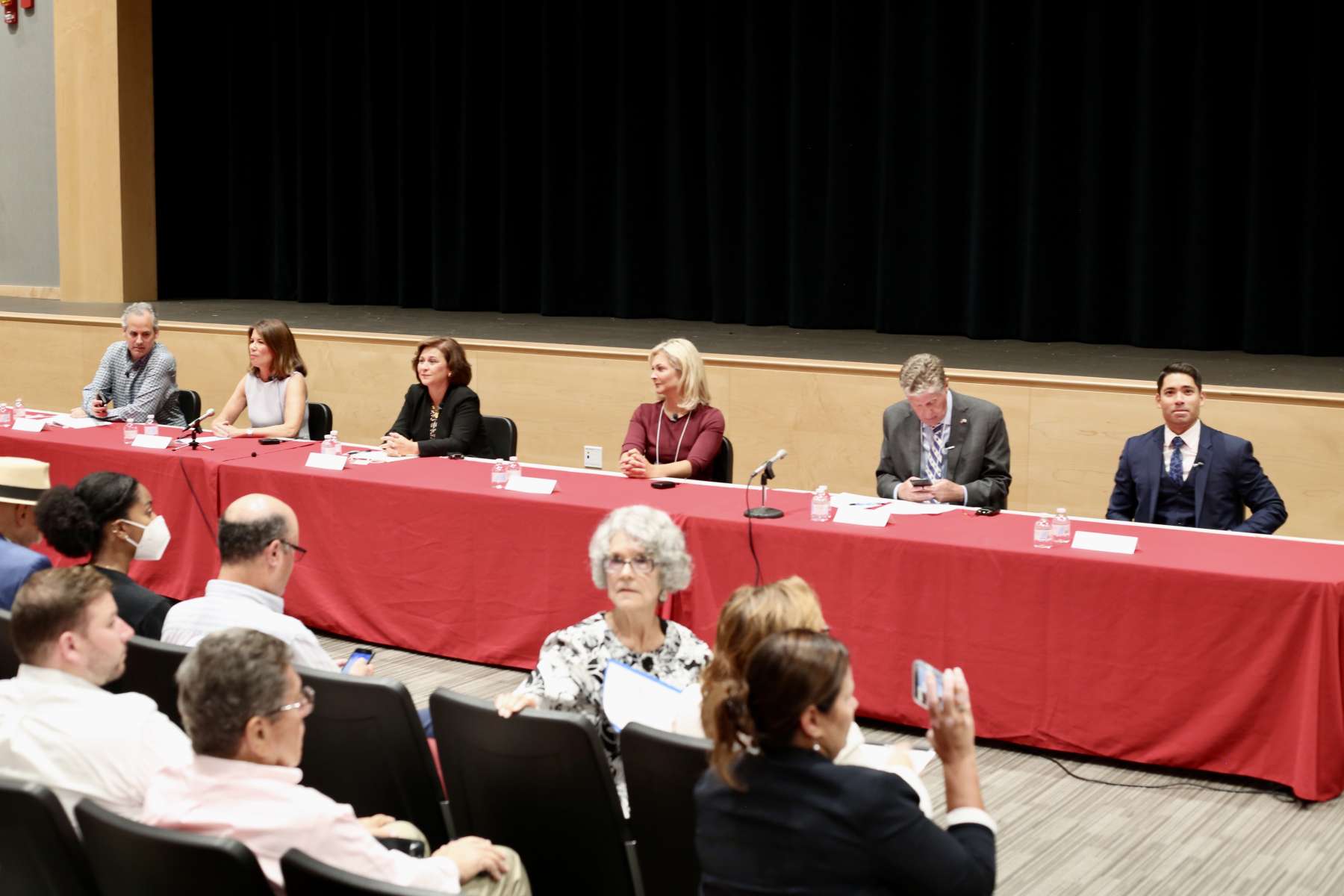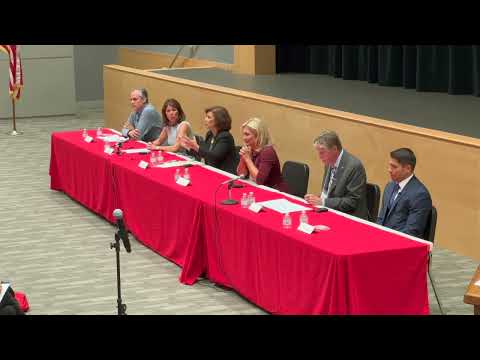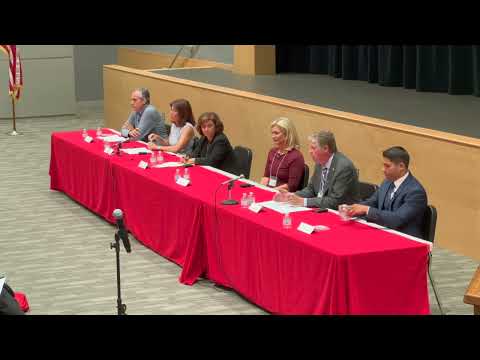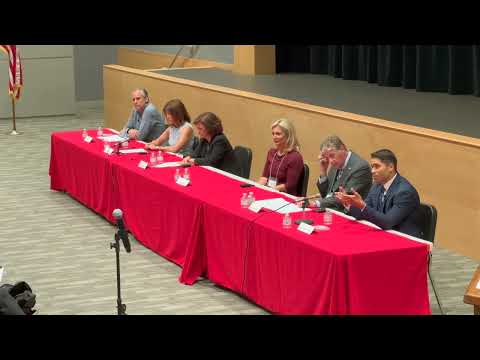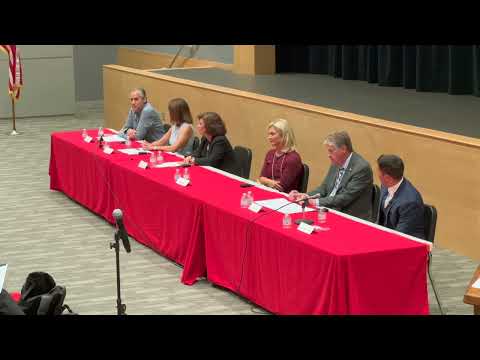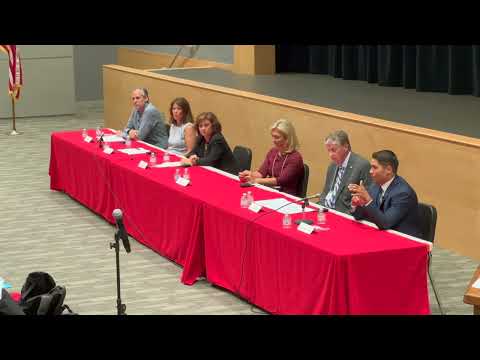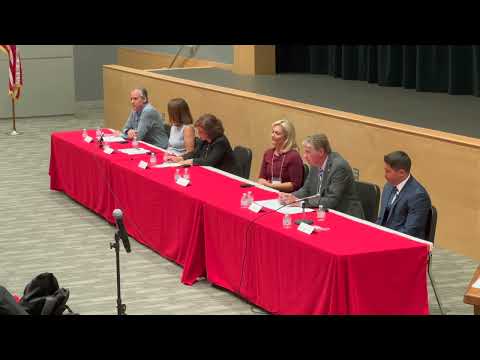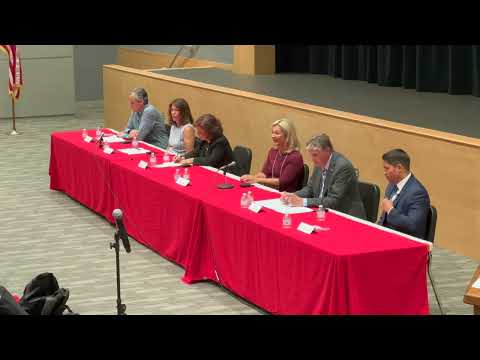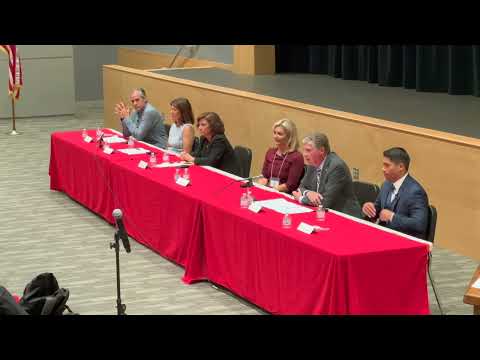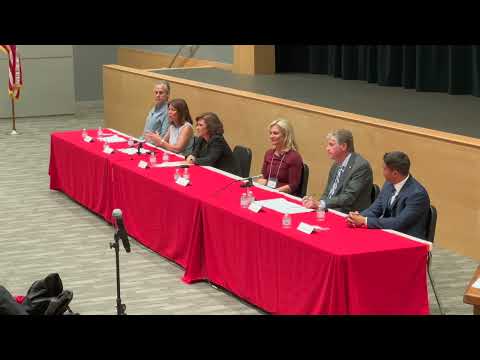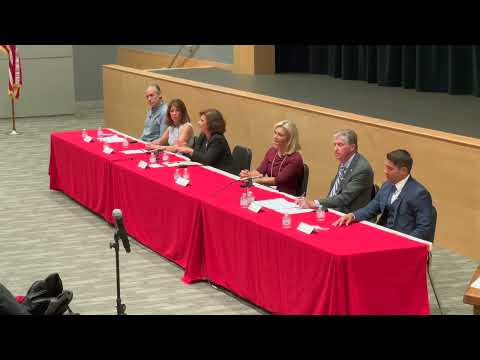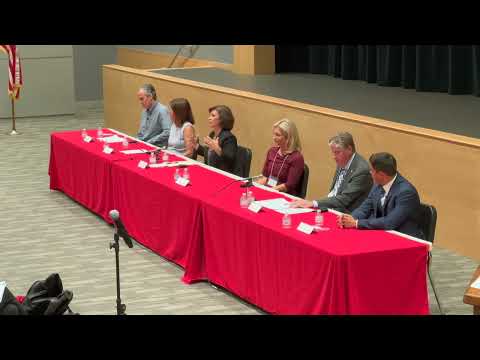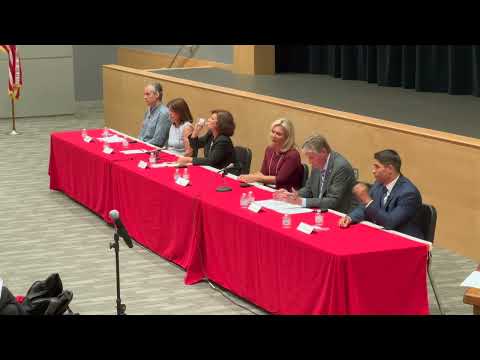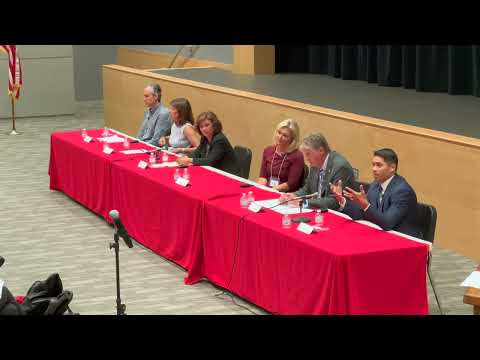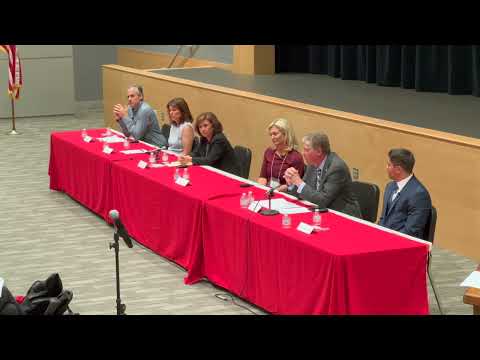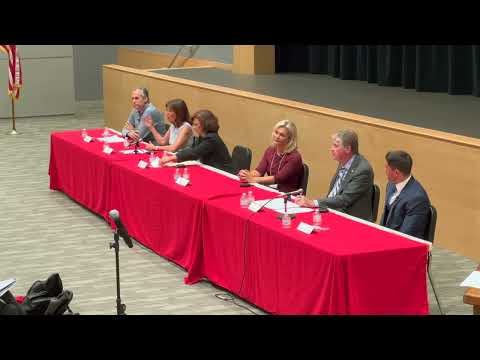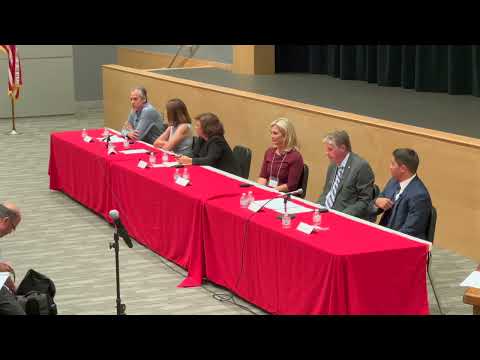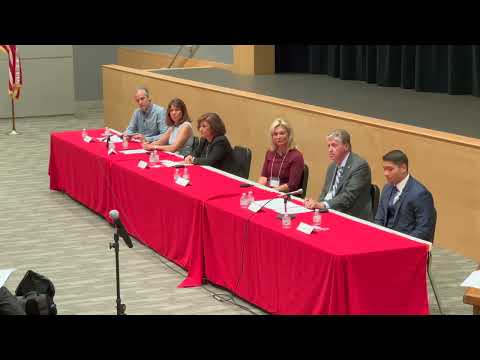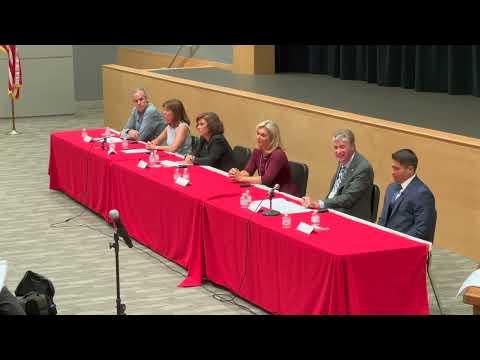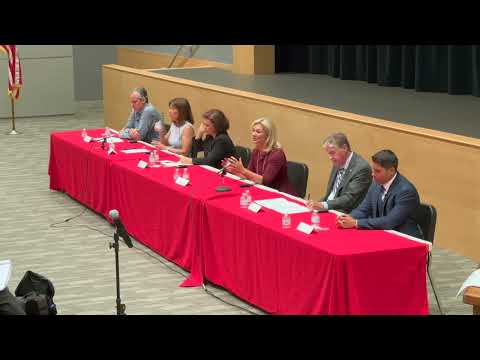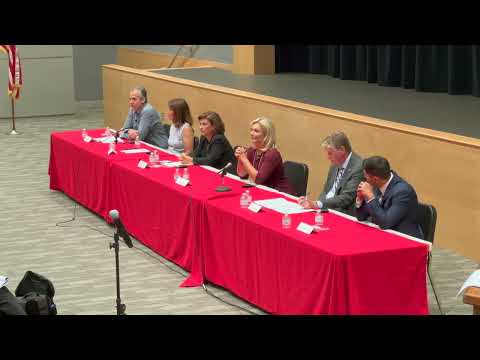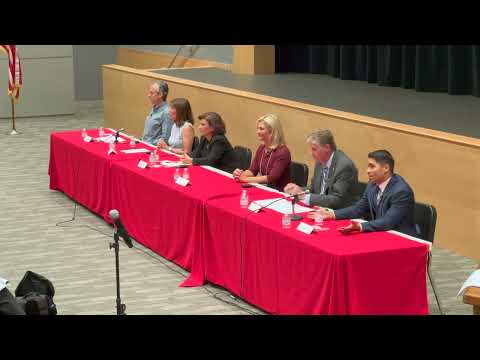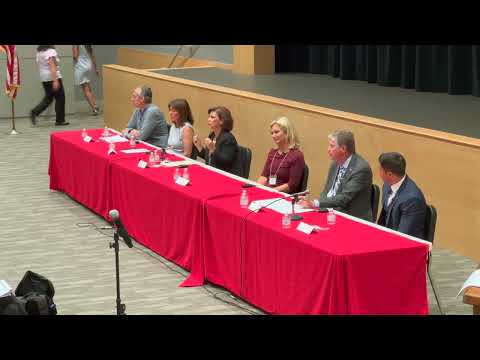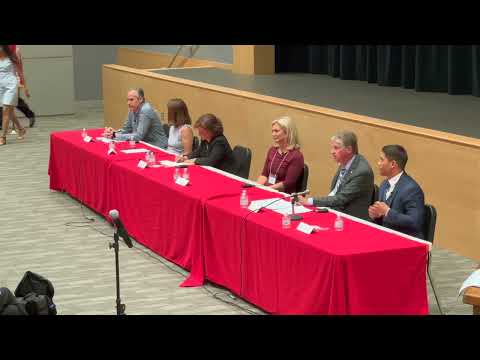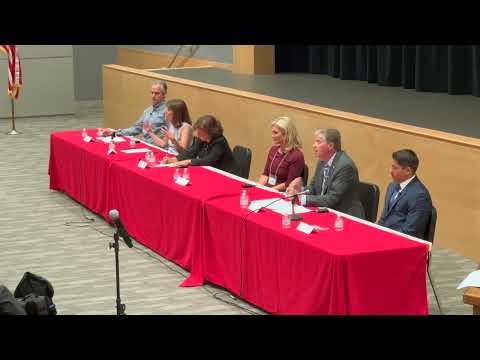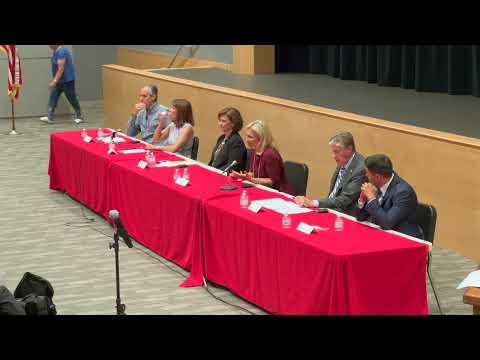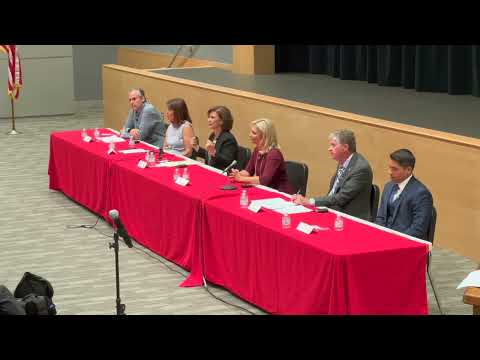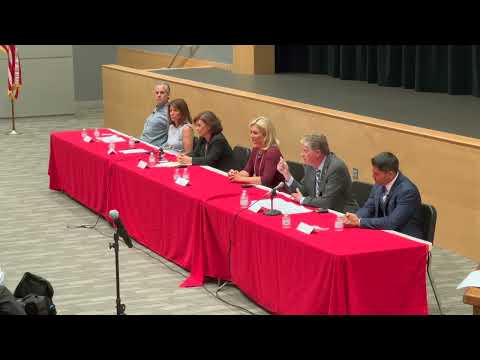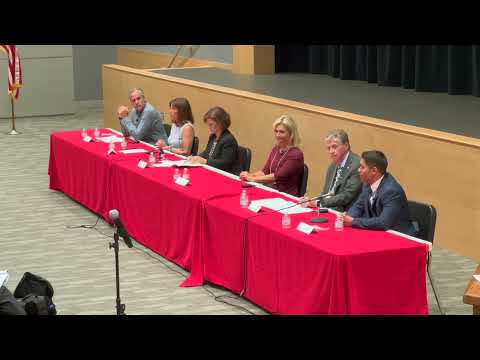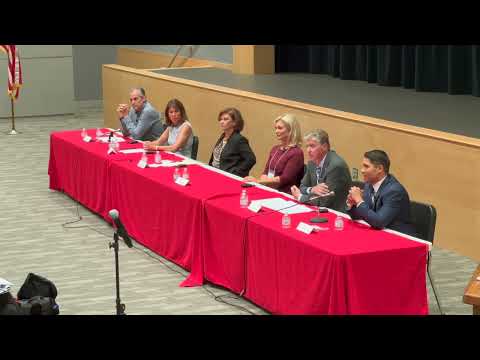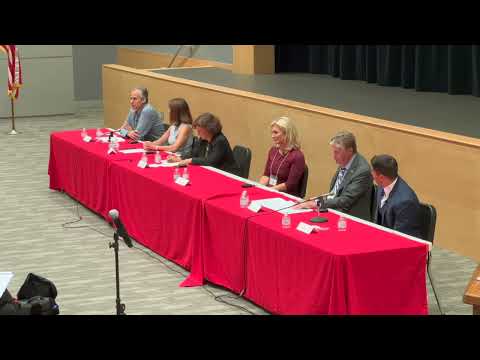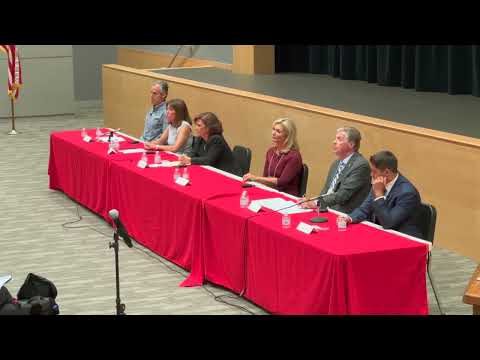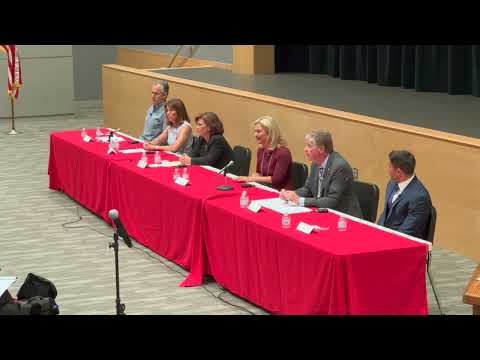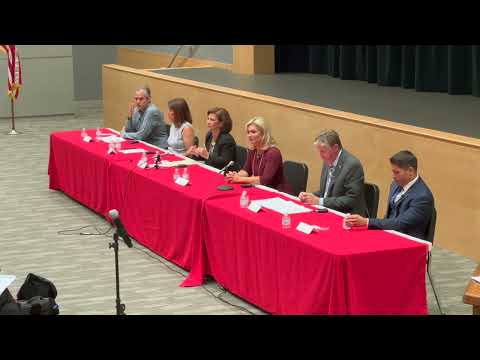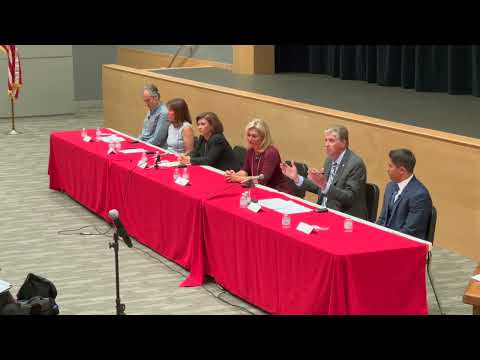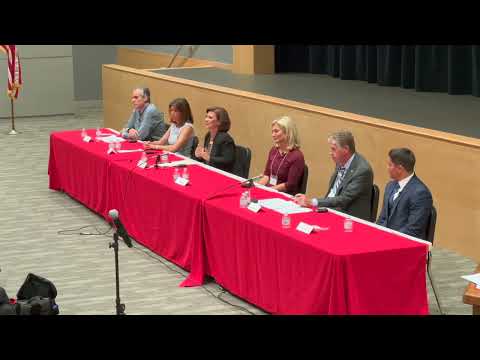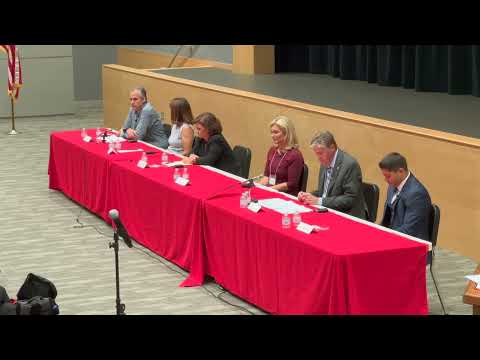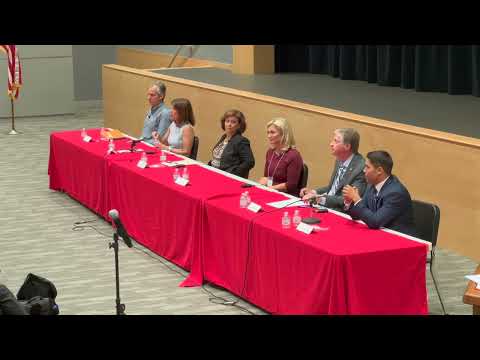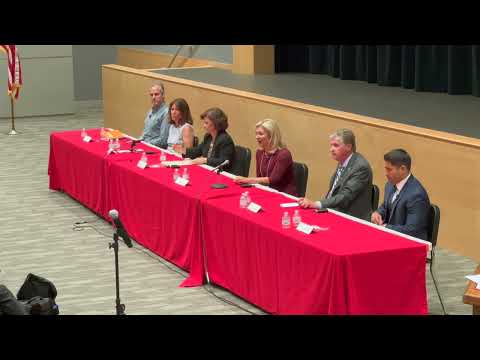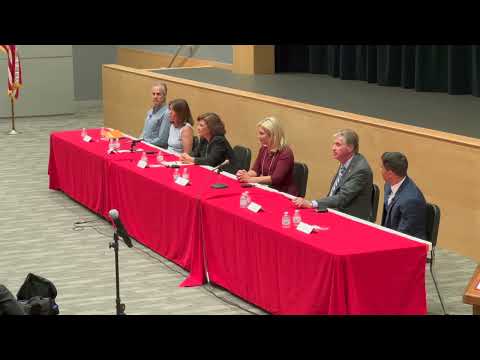Candidates for governor provide their take on senior and disability issues
As Rhode Island Statewide Planning projections indicate that people 65 and older will grow to over 1/4 of the state population by 2030, an increase of 65,000 over the 2020 census, the forum’s overarching question was: What will our next governor do to ensure the well-being of seniors, considering the forecasted population growth of older Rhode Islanders?
August 3, 2022, 3:47 pm
By Steve Ahlquist
The Senior Agenda Coalition of Rhode Island and 17 co-sponsoring agencies* held a gubernatorial forum on issues concerning Rhode Island’s aging population Wednesday morning at East Providence High School.
As Rhode Island Statewide Planning projections indicate that people 65 and older will grow to over 247,000 by 2030, an increase of 65,000 seniors over the 2020 census, the forum’s overarching question was: What will our next governor do to ensure the well-being of seniors, considering the forecasted population growth of older Rhode Islanders?
The event was emceed by Senior Agenda Board Chair George Neubauer. The six candidates for governor were asked a total of seven questions. The candidates attending were incumbent Governor Daniel McKee, Secretary of State Nellie Gorbea, former Secretary of State Matt Brown, Dr. Luis Daniel Muñoz, former CVS Executive Helena Buonanno Foulkes, and Republican candidate Ashley Kalus.
Following the typical Uprise RI format, the question is written out as asked by the moderator, followed by video of each respondent’s answer.
Workforce challenges are across the board for all providers of services to Rhode Island’s aging and disabled population. Sufficient and sustainable wages that attract, retain health and home care workers will require greater investments by the state. In order for providers of care to meet their current and future staffing needs, there must be a concerted workforce development effort to rebuild the healthcare work force to be even better than before the pandemic. This effort should include setting a minimum wage of $20 an hour for direct care staff working in Medicaid contracted facilities and agencies. As Governor, what other actions will you take to help rebuild and sustain a viable workforce for nursing home and home care providers?
Nellie Gorbea:
Daniel McKee:
Ashley Kalus:
Helena Buonanno Foulkes:
Luis Daniel Muñoz:
Matt Brown:
Greater investments in both home and community based nursing home care are needed to address the service demands of Rhode Island’s increasing 75 and older and disabled population. A third to a half will need a combination of long term support services. Most seniors prefer to receive care at home or in a community setting rather than in a nursing home. Lower than the national average, only about 30% of Rhode Island’s spending on long term services and supports for seniors and people with disabilities – excluding those with developmental disabilities – is spent on home and community based care. As Governor, what is your plan for Medicaid rebalancing and expansion, to both improve home and community based care opportunities while also ensuring the financial viability of the nursing homes?
Luis Daniel Muñoz:
Matt Brown:
Ashley Kalus:
Daniel McKee:
Helena Buonanno Foulkes:
Nellie Gorbea:
The Department of Elderly Affairs had 65 staff in the mid-1990s. Currently, the Office of Healthy Aging has a mere 31 staff people. The population of Rhode Island seniors has increased dramatically and will continue grow exponentially. Funding for senior centers, senior nutrition programs, transportation, information services, and other community supports has not kept pace with the growth in the population, falling further behind in addressing these needs. As governor, what will you do to increase resources to significantly support healthy aging in our communities.
Nellie Gorbea:
Ashley Kalus:
Luis Daniel Muñoz:
Daniel McKee:
Helena Buonanno Foulkes:
Matt Brown:
A two-part question focused on the immediate ways for the state to impact the incomes of lower-income seniors, the Supplemental Security Income (SSI) and Medicare Savings Programs (MSP). SSI is a federal program that provides monthly payments to seniors, age 65 and older and people with disabilities who have limited income and resources. The state provides a supplement, but the total benefit of SSI, plus the state supplement in 2022 is $880.92, which is 78% of the federal poverty level. While the federal portion is adjusted every year, the state share has been frozen for 30+ years.
For lower-income Medicare enrollees, average out-of-pocket healthcare costs $6,668 yearly are a significant economic burden for adults who are not eligible for Medicaid.
The Medicare Savings Program, a joint federal and state program pays some Medicare. States are allowed to increase eligibility in enrollment. While many states have expanded eligibility for MSP, Rhode Island continues to use the federal minimum income and asset eligibility criteria.
As governor, will you, 1. Increase a yearly cost of living adjustment into the state SSI supplement payment in your proposed 2024 budget? 2. Increase eligibility for the Medicare Savings Program for seniors and people with disabilities in your proposed 2024 budget by eliminating the asset test and increasing eligibility to at least 185% of the federal poverty level?
All candidates responded “No.” Candidate Kalus expressed some caveats.
The need for safe and affordable housing for older Rhode Islanders has been well documented and is critical to maintaining their health, wellbeing and independence. Now that the state has passed an unprecedented $250 million in funding for housing, as governor, how will you ensure that an adequate amount is allocated to support our older population?
Daniel McKee:
Helena Buonanno Foulkes:
Ashley Kalus:
Matt Brown:
Luis Daniel Muñoz:
Nellie Gorbea:
COVID disproportionately impacted Black and brown communities with particular devastation on our Black and brown elders and our Black and brown healthcare workers and persons with disabilities. The 2020 Healthy Aging Data Report tells us that there are more than 50 health indicators that have evident disparities in Black and brown populations including diabetes, congestive heart failure, stroke and Alzheimer’s disease. There is a lack of access to high quality healthcare and lack of information about available resources that support aging independently for older Black and brown Rhode Islanders. The lack of data from our state agencies on who they serve and where these services are being provided inhibits the state’s ability to make improvements in accessible delivery of care. As governor, will you commit to doing better for Black and brown communities by assuring every state agency collects and analyzes data on race, ethnicity and languages spoken for the people they serve within your first two years in office, make this data available to the public, and make improvements as needed in the second half of your term to ensure equal access to high quality healthcare and information about available resources?
Matt Brown:
Helena Buonanno Foulkes:
Ashley Kalus:
Nellie Gorbea:
Daniel McKee:
Luis Daniel Muñoz:
State aging and long-term care services are fragmented, spread across a number of state agencies, lack stable leadership and a coherent and overarching vision. Development of a cross-sectional strategic plan on aging will help the state get its infrastructure and coordination of services for its rapidly growing older population. Such a plan would look at the domains of community livability such as transportation, housing, information services, food and economic security, access to health care, supports for living at home and caregiver supports and public spaces. It will identify services gaps and waiting lists, and racial inequities in the accessibility and delivery of services for immigrants and communities of color. It will use data to project long term services and support needs and it will bring together state agencies, members of the legislature, community organizations, direct care staff, older persons and persons with disabilities, faith and business leaders, and academia together to set a vision, goals and action steps.
As governor, will you pledge to address the needs of our growing older population and provide the leadership and resources necessary to create and implement a Rhode Island strategic plan on aging?
Luis Daniel Muñoz:
Matt Brown:
Helena Buonanno Foulkes:
Ashley Kalus:
Nellie Gorbea:
Daniel McKee:
Each candidate provided a closing statement:
Nellie Gorbea:
Matt Brown:
Daniel McKee:
Luis Daniel Muñoz:
Ashley Kalus:
Helena Buonanno Foulkes:
*Forum sponsors include: Alzheimer’s Association Rhode Island Chapter, A Community Together, Carelink, Community Provider Network of Rhode Island, Economic Progress Institute, Leading Age Rhode Island, NAACP Providence Branch, Ocean State Center for Independent Living, PACE, Progreso Latino, Rhode Island Assisted Living Association, RI Elder Info, Rhode Island Health Care Association, Rhode Island Organizing Project, Rhode Island Senior Centers Directors Association, Senior Agenda Coalition of RI, SEIU Healthcare 1199 and The Village Common of Rhode Island.



